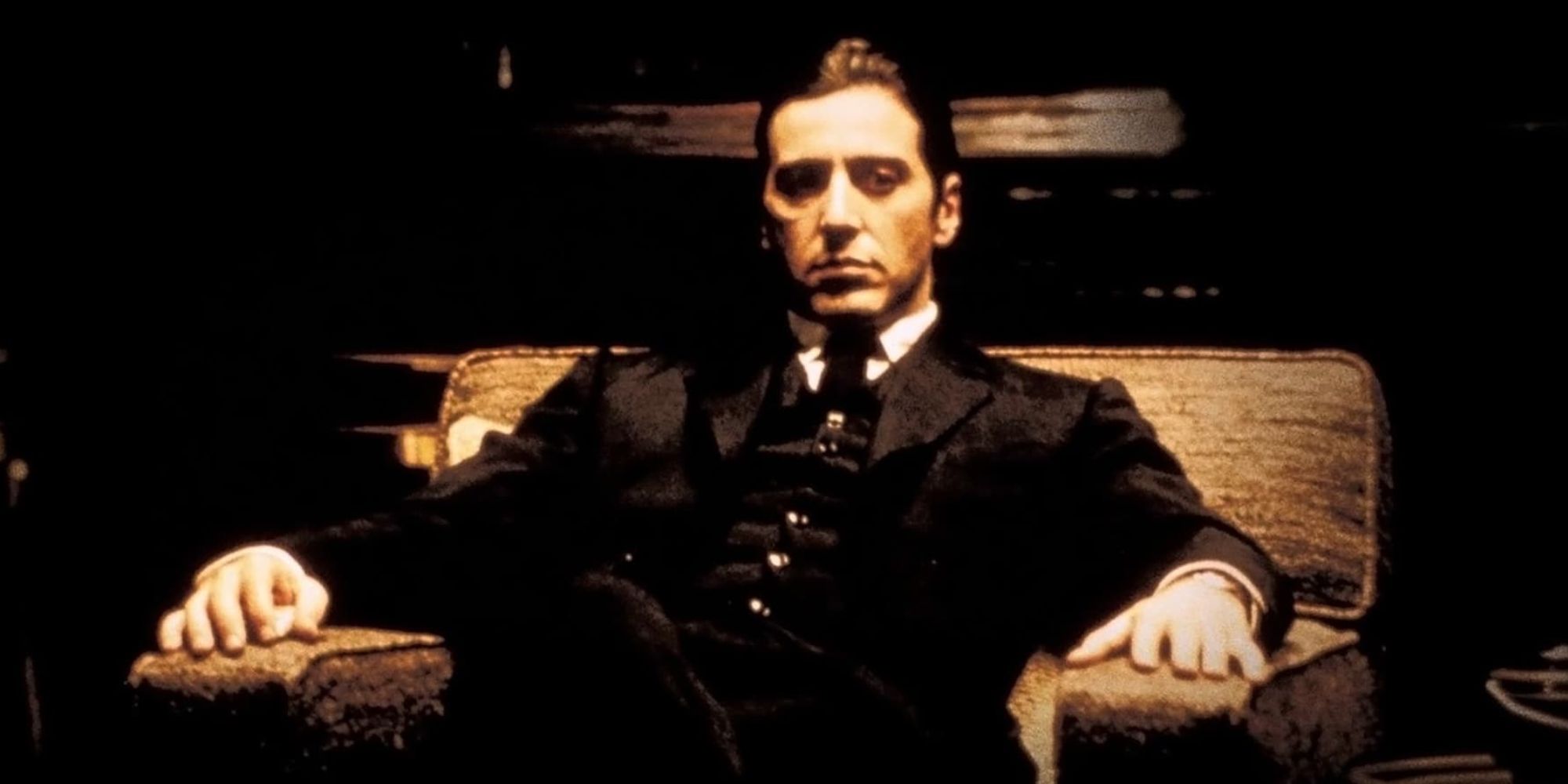
Acting is an art, not a science, and the work that goes into delivering a good performance isn’t something that can simply be replicated, even by the exact same actor. Even those performers who don’t peak with an Oscar win can find it difficult to always maintain consistency among the outside pressures and factors that can alter a performance. In addition to all that, some acting performances, even those that have won Oscars, don’t stand the test of time and age poorly.
Then there are those performances that somehow manage to exist outside the acting-time continuum. These are performances that completely transcend their time and place, remaining unblemished. No matter what history may have had in store for these actors or their careers, these performances are absolutely timeless because of their significance, impact, and legacy within the cinematic medium.
10
Rita Moreno as Anita
‘West Side Story’ (1961)
There are more than a few elements of the Oscar-winning musical West Side Story that haven’t aged particularly well, but Rita Moreno‘s performance as Anita isn’t one of them. The only true Puerto Rican in the cast, Moreno breathes life into Anita in a livewire performance that still holds a charge over sixty years later, even in comparison to Ariana DeBose‘s interpretation of the character in the Steven Spielberg-directed remake.
Though Moreno was dubbed for a couple of the film’s songs, her singing is on full display in the iconic performance of “America,” which perfectly encapsulates Moreno’s fiery passion and attitude, leaving most of the other cast members in the dust. Musical performances often dance across a careful line that runs between broad theatricality and honest emotion, and Moreno doesn’t put a single step out of place.
9
Angela Bassett as Tina Turner
‘What’s Love Got to Do with It?’ (1993)
Angela Bassett‘s first Oscar nomination came for this harrowing biopic of Tina Turner, and while the singer herself had issues with the film, she found no faults with Bassett’s soulful performance. Chronicling the years Turner was with her husband, Ike, the film is fraught with violence and abuse, which is difficult to watch. Still, Bassett’s powerhouse performance shines through, delivering all the electricity and energy expected in a depiction of the famed singer.
It’s been argued over whether performances based on real people are easier than those that are wholly created by an actor, but those arguments are rendered moot when witnessing one such as Bassett’s. Her work is elevated well beyond mere mimicry and exposes a much deeper human vulnerability within. Bassett has long been overlooked for her performances that often celebrate strong Black women, and she continues to dedicate herself to exploring new territory in her career, which can only mean good things for audiences.
8
Boris Karloff as Frankenstein’s Monster
‘Frankenstein’ (1931)
The original Frankenstein is one of the most influential horror films of all time and has aged remarkably well in comparison to many other films from the same time period. The biggest reason for its timeless success is Boris Karloff’s iconic portrayal of the tragic monster. While perhaps not a perfectly faithful representation of Mary Shelley‘s character, Karloff imbued the sympathetic monster with a pathos that transcended its origins and remains the signature depiction.
All the actors who would subsequently portray the character, including incredible talents like Christopher Lee and Robert De Niro, exist in the shadow of Karloff. Without a single word, the actor conveys the fear, anger, and innocence of a creature brought unwillingly into a world that wants to destroy him. Despite appearing in over a hundred films across all genres, so definitive was his portrayal as Frankenstein’s Monster that Karloff would forever be associated with the character and the horror genre.
Frankenstein
- Release Date
-
November 21, 1931
- Runtime
-
70 Minutes
- Director
-
James Whale
7
Sidney Poitier as Virgil Tibbs
‘In the Heat of the Night’ (1967)
A film whose relevance as a racially-charged thriller seems to frustratingly rise every few years, the police procedural In the Heat of the Night was also a perfect showcase for Sidney Poitier. His poised performance as Virgil Tibbs, a Philadelphia cop stuck in the deep South, was as defiant in the face of Hollywood convention as the character is when confronted with bigotry. Even years later, the film and Poitier’s performance still deliver a jarring slap in the face to intolerance.
Poitier’s presence as one of the very few prominent actors of color during his early career placed a heavy burden upon his shoulders for representation, but he handled it with grace while kicking open doors for many Black actors to come. His chemistry on screen with Rod Steiger set an example for buddy cop films for decades to come, while his role in particular issued a directive to Hollywood for better representation.
6
Gloria Swanson as Norma Desmond
‘Sunset Boulevard’ (1950)
To be sure, Sunset Boulevard is not a film that could take place in any era. As possibly the greatest film noir ever made, Billy Wilder‘s pitch-black Hollywood tragicomedy pinpoints a very specific time in film history. Gloria Swanson‘s performance as Norma Desmond, a former silent film star whose fame has faded just as much as her sanity, personifies that era while also timelessly embodying the fractious relationship that studios have with women of a certain age.
Norma Desmond is a purposefully histrionic character, frozen in a glory daze of her long-forgotten stardom. Swanson, who herself was a pioneering silent film star whose career had waned, gives a performance that is exactly the kind that inspires imitators and satirizations, but none capture the ineffable presence informed by Swanson’s lived experience. That she didn’t win her Oscar nomination is still unfathomable.
5
Jodie Foster as Clarice Starling
‘The Silence of the Lambs’ (1991)
Jodie Foster had been giving notable performances for well over a decade before she was cast as Clarice Starling, the devoted FBI agent at the heart of the serial killer thriller The Silence of the Lambs. While the film is filled with plenty of scenery-devouring characters, it’s Foster’s dogged determination and vulnerability that hold it all together. Opposite Anthony Hopkins‘ hypnotic villain Hannibal Lecter, Foster shoulders the responsibility of anchoring the film’s reality, much as Starling herself must prove herself as a woman in a male-dominated space.
The visuals help to put the viewer within the perspective of Starling through the extensive use of POV, but it’s all in Foster’s Oscar-winning performance that they feel her true grit when confronted by the steely glare of a convicted killer. It would be all too easy for Foster’s performance to dissipate in the presence of Hopkins’ grandiose character; even worse, she could have attempted to match his levels. However, Foster finds the perfect tone that not only allows the characters to connect on a discomforting level for the audience, but also balances the entire movie.
4
Marlon Brando as Terry Malloy
‘On the Waterfront’ (1954)
Marlon Brando has given many timeless performances. Often considered the greatest actor of his generation, Brando was a noted practitioner of the controversial technique of method acting. Beyond the clickbait articles that chastise bad behavior by so-called method actors, Brando’s performances speak to his effective implementation of the approach, none more so than his landmark performance in On the Waterfront.
As former boxer turned longshoreman Terry Malloy, Brando portrays a deep brokenness in the character, who has become beaten down by the corruption and criminal activity that runs rampant on the waterfront. Brando puts on an acting clinic in every scene, from his tender interactions with Eva Marie Saint to his iconic speech delivered to Rod Steiger. The actor doesn’t play a wrong note in the entire performance, and it is every bit as iconic as its reputation would suggest.
3
Ellen Burstyn as Sara Goldfarb
‘Requiem for a Dream’ (2000)
Playing a character struggling with drug addiction is often considered an opportunity for an actor looking for acclaim. Films about drug addiction or alcoholism generally allow actors to explore a full spectrum of emotional content alongside the potential for physical transformation. While many depictions can fall prey to ineffective melodramatics, those that accurately portray drug addiction will stick with viewers long after. Such is the case with Ellen Burstyn‘s unforgettable performance in Requiem for a Dream.
Based on the novel by Hubert Selby Jr., Darren Aronofsky‘s film adaptation is known for both its frenetic visual style and being a very difficult watch, as each of its characters suffers a downward spiral from drug use. Burstyn plays Sara Goldfarb, a Brighton Beach resident whose dreams of appearing on her favorite game show lead her towards heavy use of amphetamines to lose weight. As she slips further into her drug use and begins to hallucinate from drug-induced psychosis, Aronofsky’s visuals become even more untethered and surreal. Yet, Burstyn is in such command that her suffering is never lost among the artifice. While incredible makeup design helps make the physical transformation palpable, it’s all in Burstyn’s performance that the audience is able to empathize with her. It’s an emotionally draining experience that will have most viewers feeling hollowed out by the end.
2
Al Pacino as Michael Corleone
‘The Godfather’ (1972)
Al Pacino has played many a villain in his career, and while some viewers may associate the actor with his over-the-top performances played at maximum volume, nothing touches his subtle descent into darkness as the youngest son of the Corleone family in the gangster classic The Godfather. Brando may have taken the Oscar glory for his singular performance, but Pacino is just as inimitable and perhaps even more powerful for how he portrays the corruption of a man’s soul.
Studio executives infamously wanted a more established star to play the key role in Francis Ford Coppola‘s crime epic, but the director held firm, saving the film from a possibly disastrous miscasting and giving Pacino the role of a lifetime. Nothing is overplayed or telegraphed in Michael’s transition from wanting nothing to do with his criminal family to becoming its patriarch, and the quiet menace with which he threatens his enemies is more disquieting than any screaming histrionics could ever be.
1
Robert De Niro as Travis Bickle
‘Taxi Driver’ (1976)
Pacino’s closest contemporary, Robert De Niro, has his share of essential performances that could easily slot in as timeless, none more deserving than the troubling and prescient one at the heart of the dark psychological thriller Taxi Driver. To prepare for the role of loner Travis Bickle, De Niro got a job as a taxi driver and dropped his weight to play the character as lean as possible. The physical transformation mirrors the character as he becomes like a spring that is progressively coiled tighter and tighter, threatening to be unleashed at any moment.
Bickle has inspired years of debate, and De Niro’s nuanced portrayal of a Vietnam veteran warped by the violence he’s witnessed leaves plenty of room for interpretation. While Paul Schrader‘s script provided the dark interior monologue of the character, it was De Niro himself who came up with the character’s most iconic line as he stared himself down in the mirror, which helped forever burn the character into the minds of audiences. De Niro’s performance not only remains timeless, but has seemingly only grown more relevant in an era where it seems that more individuals who subscribe to a Bickle-like ideology are becoming worryingly more prevalent every day.
Taxi Driver
- Release Date
-
February 9, 1976
- Runtime
-
114 Minutes
NEXT: The 10 Best Performances in Robert Eggers Movies, Ranked

